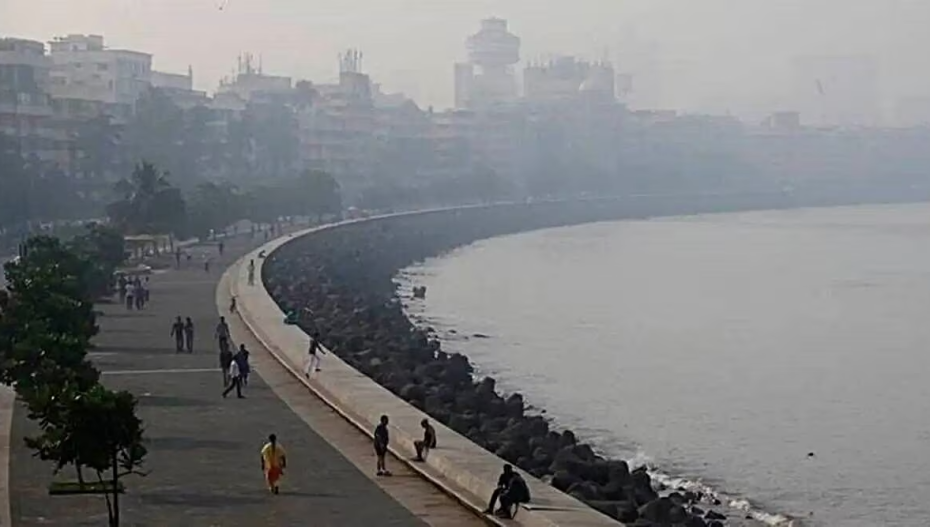Is Mumbai going the Delhi way? The city’s alarming pollution levels have ravaged public health. Air quality has been severely impacted by an increase in traffic, open-air garbage burning, waste from industries and refineries, and construction activity.
In the last month, Brihanmumbai Municipal Corporation (BMC) has imposed several bans. It has outlawed burning trash, is strictly enforcing cement mixing ratios, and is prosecuting builders who break regulations.
Despite a deadline for bursting crackers and other measures, pollution levels in the rest of Mumbai finally decreased, but since October, the Air Quality Index (AQI) in the city has gotten worse.
As reported by The Print, the problem is acute and has no quick fixes. The air is perennially toxic in some areas.
The worst are the suburbs of Deonar and Govandi, where India’s largest garbage dump, spread over 300 acres with about 17 million tonnes of rubbish, rubs shoulders with a biomedical incinerator that was only recently shut down, illegal ready-mix cement plants and factories belching out smoke.
The BMC, which had allocated Rs 25 crore out of its budget of Rs 52,619 crore to combat air pollution, has implemented mitigating measures like sprinkler systems and hyper-local monitoring of Mumbai neighbourhoods. These are not permanent solutions.
The municipality is contemplating building a waste-to-energy facility at the Deonar dumping ground. This facility would be able to process about 600 metric tonnes of waste per day and produce 1.7 million units of energy annually. Residents and activists in Deonar Govandi claim that even if it does surface, it is a case of too little, too late.
In the slums around Govandi, the locals inhale a semblance of fresh air only when they go home. People live in a jumble of huts and tenements, with mountains of trash towering over them, possibly as high as an eighteen-story skyscraper. As the mountains get bigger, the sprawl has grown, with a population density of more than 35,000 people per sq km (as of the 2011 census).
The Govandi-Deonar is a magnifier for the rest of Mumbai when it comes to air pollution, The Print report reveals. When Mumbai’s air quality index averaged 124 in the first week of November, Deonar’s index was nearly 30 points higher.
On Thursday morning, the view from the Eastern Express Highway appeared worn and blurry, akin to the visuals produced by an unclean camera lens. Drivers were met with a smell of rotten air, smog, and haze.
The city has always been able to control pollution levels thanks to its well-known coastline. However, infrastructure projects like the coastal road and metro, the demolition of older structures, the construction of towers, variations in wind speed, and an increase in vehicle emissions have all contributed to the rising pollution levels in the financial capital, Dr Gufran Beig, founder and project director at SAFAR, a government organisation that keeps an eye on the quality of the air in major Indian cities.
Meanwhile, the BMC developed plans to lessen the detrimental effects of the dust produced by building and demolition operations. Among other things, it directed developers to use covered vehicles for the transportation of construction materials and debris, install dust screens along building facades, and use water sprinklers to disperse dust clouds.
BMC also served notices to gold and silver smelting companies in Mumbai’s well-known jewellery market, Zaveri Bazaar, The Print added. They even destroyed the chimneys of four of these tiny manufacturing facilities.
The Maharashtra Health Department has urged people to refrain from outdoor morning and evening walks, running, jogging, and physical exercise in the event of a poor-severe AQI.
But there is only so much that civic bodies can do. As the article warns, unless the government measures are enforced stringently, Mumbai will certainly go the Delhi way.
Also Read: Socio-economic reality check for MP as it heads to the polls












